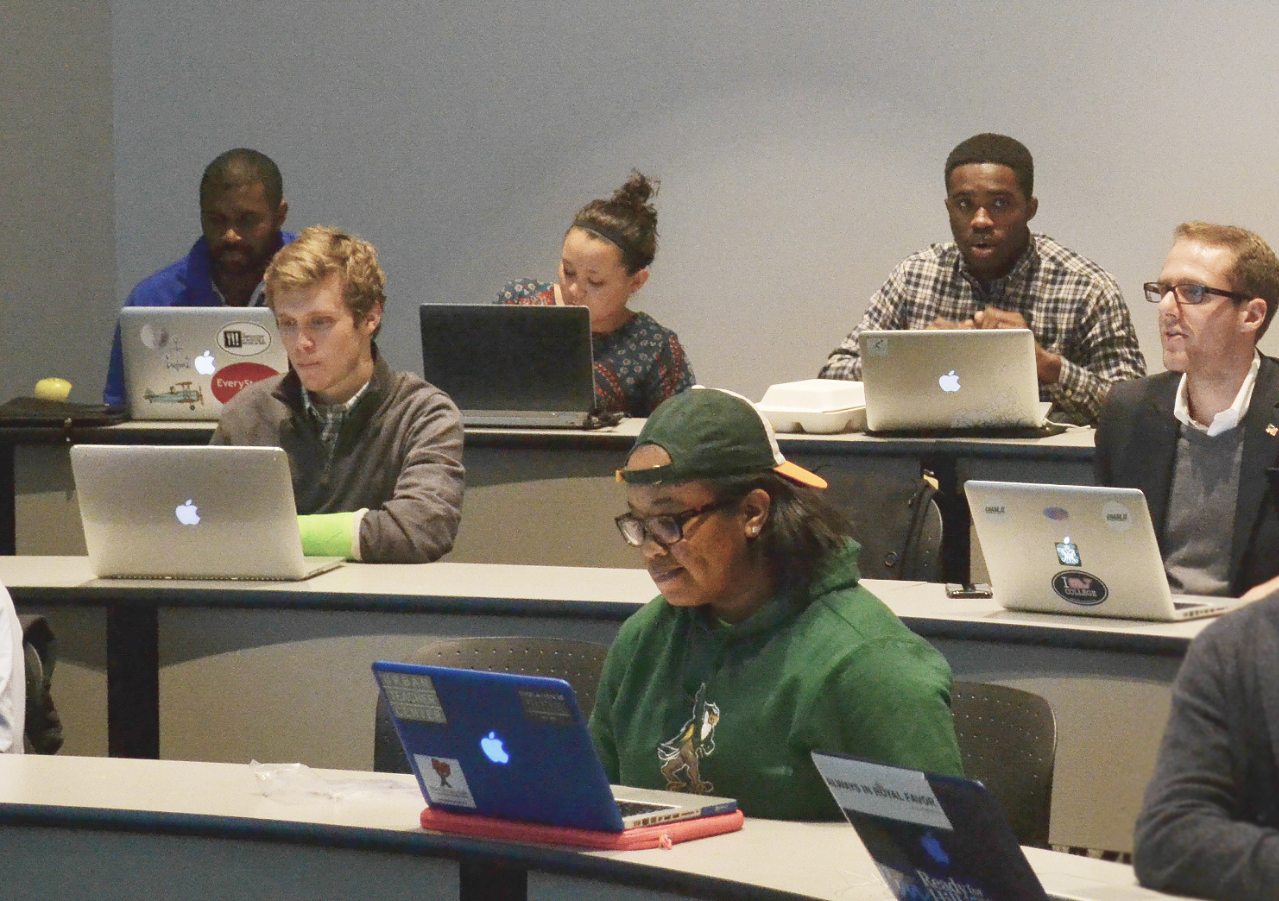Senators reviewed the Code Restructuring Act and the Constitution Restructuring Act in all of the Student Assembly senate’s Sunday committee meetings. The Executive Committee did not meet.
The senate committees discussed concerns over the bills, which propose the dissolution of the Undergraduate Council branch of the SA. Under the bill’s proposed changes, the office of class president would still exist. However, the office would take on more responsibilities.
These changes follow a growing feeling among Student Assembly members that the Undergraduate Council has lost its purpose over the years.
“The goal of this bill is to address where undergrad is a branch of the Student Assembly,” Class of 2016 President Mark Bland said. “As you can see through the language, we’ve really evaluated what the role of the Undergraduate Council is, looking at it historically as a programming body and seeing now that there are other organizations on campus that have these programming abilities.”
If the bills’ proposed changes are approved, the class president would be given voting rights in the senate and in senate committees. He or she also would chair a social class leadership meeting, which would bring together the four senators and class president to discuss problems and programming relevant to their class.
Bland made the distinction that the class president should not be interpreted simply as a fifth senator. He argued instead that the bill would give the class president more responsibilities.
“We are looking at the distinction between senators and class presidents, because they are distinct roles,” Bland said. “And so we want the class president to still take on the advocacy focus and the potential programming focus of the class, while keeping the senators more focused on the senate committees, because they are senators. So the president isn’t a fifth senator; the president is just able to be more active in a role on the Senate as a voting member.”
Bland also explained that under the new structure, the Student Assembly would still run the programming responsibilities of the Undergraduate Council, like Warm Wednesdays and the junior class ring ceremony. However, these programs would now be charged to senators and the class president.
During the Student Life Committee’s meeting, Sen. Daniel Ackerman ’16 raised the concern that the social class leadership meetings will not be as structured as they should be, after Bland clarified that the meetings would not have to take place every week.
“Are you afraid that out of laziness some classes will just never meet?” Ackerman said. “Without these planned meetings … people might not have more enthusiasm to go and meet.”
Chief of Staff Drew Wilke ’15 said that typically, the social class meetings are expected to take place every week, although the meetings are not required to occur on Sundays specifically. Bland emphasized that it is expected that representatives from each social class are in conversation with each other weekly.
Other senators raised concerns about the loss of manpower associated with these bills, because 12 SA positions would be removed. Ackerman explained that manpower is important for SA events to be well staffed.
Sen. Chase Jordan ’15 suggested implementing the intern program that the 321st senate added to the SA’s constitution to help with the decreased manpower. He argued that the program would also give those interested in SA an opportunity to get involved. While the intern/page program was added during the senate’s last session, it was never put into effect during the 322nd session.
“It makes the Student Assembly stronger because our elections become more competitive, so we’re attracting higher-caliber candidates, which will especially help our upperclassmen. … To make sure we’re not disenfranchising the youth, as in the freshman class, we’re going to institute the already codified intern/page program,” Jordan said.
Ackerman also asked for clarification on the issue of senators’ representation. Jordan explained that in the past, senators have been more focused on representing the entirety of the student body, while the Undergraduate Council was focused on social class representation.
“That’s a question that really hasn’t been discussed. … I think especially this year, we do see more of a focus within the senate on identifying individuals by their year,” Bland said. “They are representatives of their social class. … I think this is kind of a shift in Student Assembly as a whole that I don’t think we’ve had this conversation before, honestly it’s something that would be valuable. At the same time, I think it’s a benefit to have individuals in the senate that are representing their class.”
The Code Restructuring Act and the Constitution Restructuring Act received positive recommendations from all committees and will appear on the senate floor Tuesday for a vote.

